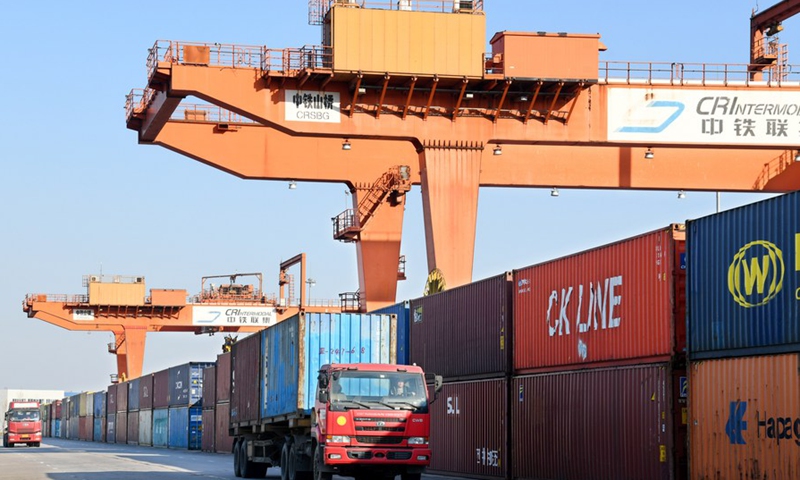
A truck hauling containers passes the freight yard of the multimodal transport center in the China-Shanghai Cooperation Organization (SCO) local economic and trade cooperation demonstration zone in Qingdao, east China's Shandong Province, Nov. 9, 2020. (Photo: Xinhua)
China is increasing the number of free trade zones (FTZs) and downsizing the negative lists for overseas investment to increase the quality of the FTZs and further the openness of its trade and market.
According to statistics from the Ministry of Commerce, China has so far established 21 FTZs in total, with the first initiated in Shanghai in 2013.
The country has been working to grant more autonomy to the FTZs and cutting down the negative lists to further open up more sectors for investments. According to the Ministry of Commerce, the total number of items on the negative list is cut from 190 in the beginning of the trial reform to 30 in 2020. In the free trade port in South China’s Hainan Province, the negative list only contains 27 items.
FTZs are playing an increasingly important role in accelerating the competitiveness of China’s trade sector and attracting foreign investment. In 2020, a total of 393,000 new enterprises were established in the first 18 pilot free trade zones, and the actual use of foreign capital reached 176.38 billion yuan ($27.3 billion).
The FTZs also received 17.6 percent of the country’s foreign investment and contributed 14.7 percent of total imports and exports, according to the Ministry of Commerce.
Amid the fallout of COVID-19, China has introduced a spate of policy support to help accelerate quality growth within FTZs. A total of 24 measures were introduced to help lift Central China’s Hubei Province out of the economic damage caused by the pandemic in 2020.
Under policy support to better the business environment, Hainan's economic growth has gained impetus, as the country's largest free trade port zone was established despite the COVID-19, boosting the island's service revenues taking up a bigger share of the province's economy, according to Hainan' s bureau of statistics.


